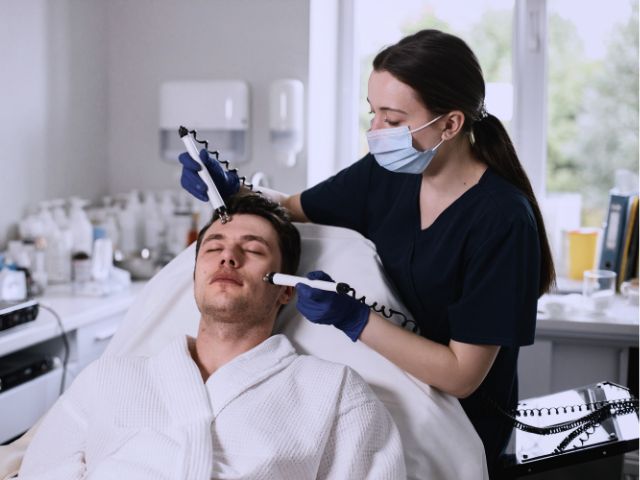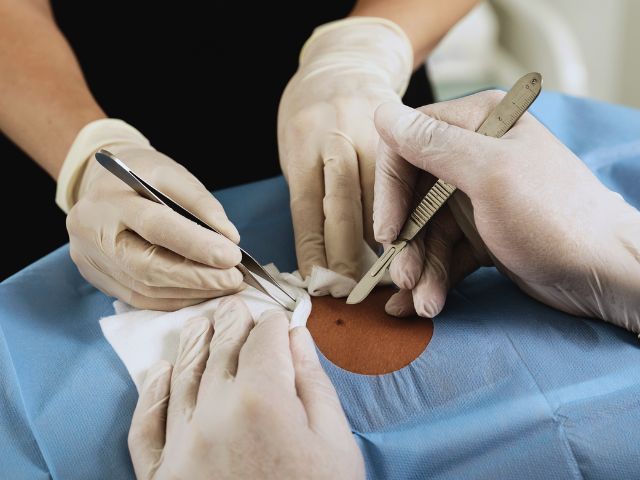Job Responsibilities of A Dermatology Nurse
As a dermatology nurse, you have the following responsibilities:
Conduct Skin Assessment
Dermatology nurses inspect the patient’s skin thoroughly. They check it physically for lesions, cuts, abrasions, abnormalities, and any signs of infections and document the findings.
Educate Patients
Inform patients about their health condition, explain preventive measures, and discuss treatment options. They are also responsible for efficient skin care practices such as sun protection, skincare routine, and managing specific skin conditions.
Treatment Planning
Collaborate with other dermatologists and devise an appropriate treatment plan for the patient, which may involve prescribing skincare routines and topical treatments or recommending lifestyle changes to manage the skin condition.
Participate in Procedures
Nurses must take part in procedures such as skin peeling, laser therapy, cryotherapy, or injectables. Moreover, they also take care of wounds, perform biopsies, and suture the skin.
Dermatological Testing
Dermatology nurses play a role in skin testing, such as patch tests, allergy tests, or skin cultures that help diagnose and manage a condition.
Offer Supportive Care
Dermatology nurses must listen to the patient’s concerns and address their anxiety, especially if they have a chronic condition. Also, the nurse may make referrals to a specialized group, or an expert can also help.
Follow-Up And Monitoring
As a dermatology nurse, you must monitor the patient’s condition postoperatively and explain how to care for the wound. Also, make sure that the patient has appointments post-surgically and attends them. You also have to update the medical records as you observe changes in the patient’s skin condition.
Coordinate and Collaborate
As a dermatology nurse, you have to refer patients to other healthcare providers for various health conditions they have. Moreover, you have to communicate with other healthcare providers to finalize the patient’s diagnosis.









